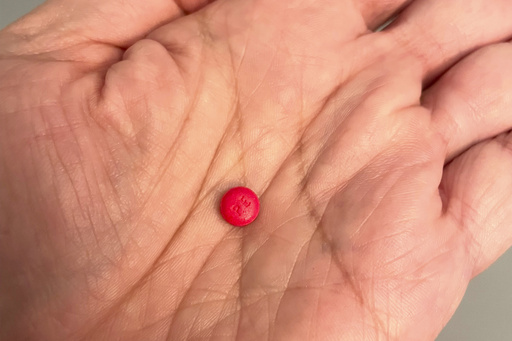Changes are on the horizon for the cold and cough medication section in pharmacies across the U.S. as officials announce plans to discontinue the use of phenylephrine, a leading decongestant found in many over-the-counter products. This decision comes after years of skepticism from experts regarding its effectiveness in relieving nasal congestion.
Phenylephrine is a common ingredient in well-known medications like Sudafed and Dayquil, but the Food and Drug Administration (FDA) has now proposed revoking its approval for use in pill and liquid formulations. This move is anticipated to compel manufacturers to either reformulate their products or remove them from shelves entirely.
This change is seen as a victory for researchers, particularly those from the University of Florida, who have urged the FDA to reassess phenylephrine’s safety and efficacy in previous years. Consumers will likely need to consider alternative medications, including an older decongestant that was restricted over a decade ago.
Healthcare professionals believe this shift will ultimately benefit patients, as many individuals currently select medications that do not effectively address their nasal congestion. “When people walk into a pharmacy filled with thousands of products, it can be overwhelming to choose something that isn’t effective,” remarked Dr. Brian Schroer from the Cleveland Clinic. “By eliminating this option, consumers will find it simpler to select products that actually provide relief.”
The FDA’s decision aligns with the conclusions drawn by federal advisers who unanimously determined that oral phenylephrine does not demonstrate any substantial benefit for congestion relief. Recent comprehensive studies revealed that twice as many patients experienced relief after taking a placebo when compared to those who took phenylephrine. An extensive review of past studies also uncovered significant flaws in the original data supporting the drug’s efficacy.
This FDA ruling specifically pertains to the oral forms of phenylephrine, which generate approximately $1.8 billion in U.S. sales annually. While nasal sprays containing phenylephrine are still deemed effective, these products are far less popular among consumers.
Historically, phenylephrine was not the first choice in cold and allergy remedies. Prior to the enactment of a law in 2006 aimed at combatting methamphetamine production, pseudoephedrine was the primary ingredient in many of these medications. As a result of regulatory changes, pharmacies moved pseudoephedrine-based products behind the counter, leading companies like Johnson & Johnson and Bayer to reformulate their offerings, creating “PE” alternatives.
For those still seeking relief through oral tablets or syrups, pseudoephedrine versions of Sudafed and similar products are still available, though they require a visit to the pharmacy counter, along with a photo ID for verification.
In addition to pseudoephedrine, various over-the-counter nasal sprays and solutions can provide relief. Saline drops and rinses can quickly alleviate mucus build-up, while nasal steroids such as Flonase, Nasacort, and Rhinocort are considered the most effective long-term treatments for nasal congestion, though they require daily use for optimal results.
Antihistamine sprays like Astepro are recommended for faster relief, but the phenylephrine-based sprays will still remain available for consumers.
Experts assert that the ineffectiveness of oral phenylephrine stems from its rapid breakdown in the stomach, negating its potential benefits. Leslie Hendeles, a professor emeritus from the University of Florida’s College of Pharmacy, explained that when ingested, phenylephrine does not enter the bloodstream effectively, thus preventing it from targeting nasal congestion.
Although earlier studies suggested that higher doses might be beneficial, subsequent research indicated that even quadrupling the current recommended dose failed to alleviate congestion, raising concerns about the safety of increased dosages due to the risk of elevated blood pressure.
Moving forward, the process for formally removing oral phenylephrine from the market will take time. The FDA must adhere to a public comment period, allowing input from both the public and the industry before reaching a final conclusion. Once the process is completed, manufacturers will likely have a year or longer to modify their products accordingly. The Consumer Healthcare Products Association has expressed a desire to maintain the availability of these medications, advocating for consumer choice in self-care options.
In light of the findings, some healthcare professionals argue that providing a choice between ineffective and effective treatments isn’t a meaningful option. This ongoing discussion underscores the importance of ensuring patients have access to genuinely effective medications for relief from cold and allergy symptoms.



